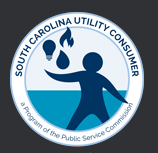The Public Service Commission Protects the Consumer
Consumers want to pay reasonable rates for their utilities, including water and electricity. Utility companies want to make money. Public Service Commissions (PSCs) help these two groups reach a compromise by protecting consumer interests and ensuring that investor-owned utility companies charge reasonable rates for their services. More information about the South Carolina PSC can be found at https://www.scutilityconsumer.com/, but residents can also read on to find out what they need to know about the PSC’s role in consumer protections.
Responsibility for Establishing Fair Rates for Utility Services
The Public Service Commission of South Carolina holds jurisdiction over the entire state, so it’s responsible for mediating the relationship between South Carolina utility companies and their customers. The PSC helps to maintain a balance between consumers’ need to receive reliable services at rates they can afford and utility companies’ desires to make a return on their investments.
The PSC is not responsible for overseeing municipal utilities. That means services like city water will fall outside of its jurisdiction. Their focus is on ensuring that private utility companies like Santee Cooper and SCE&G are not over-charging their customers.
Not Responsible for Ensuring Utility Companies Produce Earnings
While the Commission respects private power, gas, water, and phone service providers’ desires to make money, its primary focus is on protecting the rights of consumers, not companies. There are seven districts in South Carolina, each of which has one PSC commissioner. These officials are screened and nominated by the State Regulation of Public Utilities Review Committee, but they are elected by a General Assembly vote. The commissioners serve staggered four-year terms, which means they are not all elected at once. This helps to maintain continuity of services.
Residents Have Opportunity to Be Involved in Discussions
South Carolina residents are allowed to attend public hearings of the PSC, contact the state’s Office of Regulatory Staff, and write to the commissioners for their districts. Commissioners and other PSC staff members aren’t allowed to communicate directly with the public about current or potential future proceedings without notice, which means residents can’t just call up their commissioners on a whim. Instead, they must give notice and provide an opportunity for all involved parties to participate in a discussion.
Members of the public are still encouraged to participate actively in local PSC affairs by attending open sessions for matters scheduled for public hearings. They are also entitled to file letters of protest using the form available on the PSC’s website during any case currently under consideration.
All utility rates cases involve public hearings. Residents are welcome to present testimony at these hearings, acting as public witnesses. They should expect to be cross-examined by other parties, but should not expect to be able to cross-examine other witnesses. The general public cannot ask questions of the Commission when they present their testimony.
Customer Complaint Procedures
The PSC regularly receives customer complaints about utility rates and the provision of services. They handle everything from billing problems to service disruptions and installation delays. Customers who want to file a complaint should follow the Commission’s predetermined three-step process. Before filing a complaint, customers are encouraged to contact their utility companies directly. They should provide the company with detailed information about what’s going on so the issue can be investigated and, hopefully, resolved. Since privately owned utility companies rely on their customers to make money, it’s often the case that they will be willing to resolve problems directly without involving the PSC.
If the utility company does not respond, or the customer is not satisfied with the response he or she receives, the next step is to contact the South Carolina Office of Regulatory Staff (ORS). The ORS opens at 8:30 AM and closes at 5:00 PM on Monday through Friday and is closed on state holidays. Unlike the PSC, the ORS is directly responsible for representing the public interest and is considered completely separate from the PSC and other state agencies.
The ORS can be reached during business hours at 1 (800) 922-1531. Customers should prepare basic information about their complaints and what they hope to achieve before calling. An OSC official will take that information and use it to attempt to resolve the complaint informally with the involvement of the customer, the utility company, and the agency’s Consumer Services Division. It’s rare for residents to find that the OSC is unable to equitably resolve their complaints. When this is the case, though, it may be necessary to file a complaint directly with the PSC.
How PSC Handles Complaints
Unlike the OSC, which resolves customer complaints using an informal methodology, the PSC requires residents to go through a formal filing procedure. They can download the official PSC Individual Complaint Form online, fill it out, and return it to the Commission for consideration. Once the PSC receives the complaint, the customer will receive a docket number and the Commission will appoint a hearing examiner.
Complainants will have to attend a formal hearing scheduled by the PSC. Expect to provide testimony about the dispute and undergo cross-examination. The hearing examiner’s decision will be considered final. It’s important for customers who want to file a billing complaint to keep paying the undisputed amount while their cases are pending. Failure to pay the undisputed amount of bills can lead to service disconnections at the discretion of the utility providers. These disconnections are not subject to PSC oversight.
The SC PSC was established to act as a mediator between privately owned utility companies and public interests, and its Commissioners and staff members take this role very seriously. Consumers who want to learn more about the SC PSC can visit https://www.scutilityconsumer.com/about/ to get started, check the online calendar to find out about pending hearings and meetings, or subscribe to email notifications to receive emails about upcoming cases.
Media Contact
Company Name: Realtimecampaign.com
Contact Person: Rose Mary
Email: Send Email
Phone: 407-875-1833
Country: United States
Website: Realtimecampaign.com


